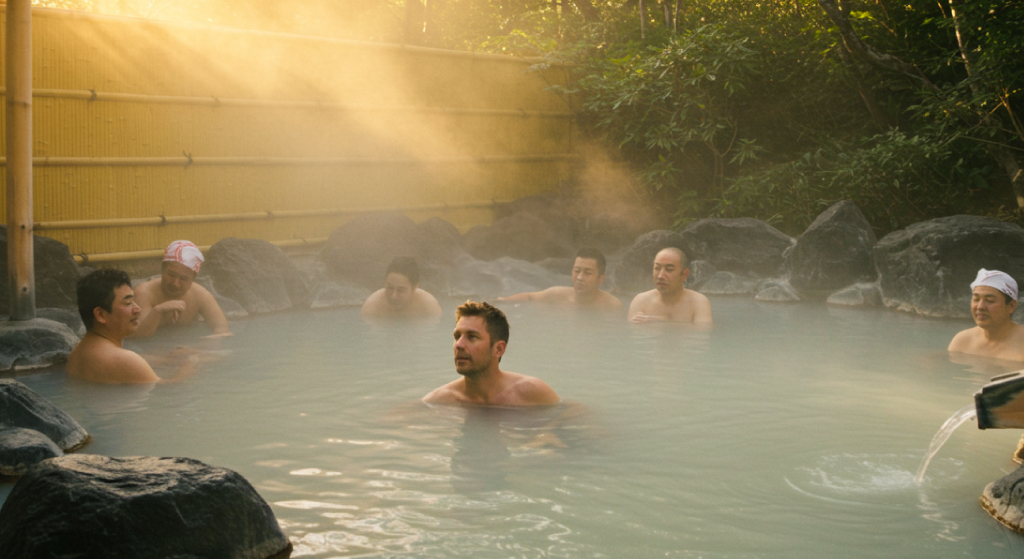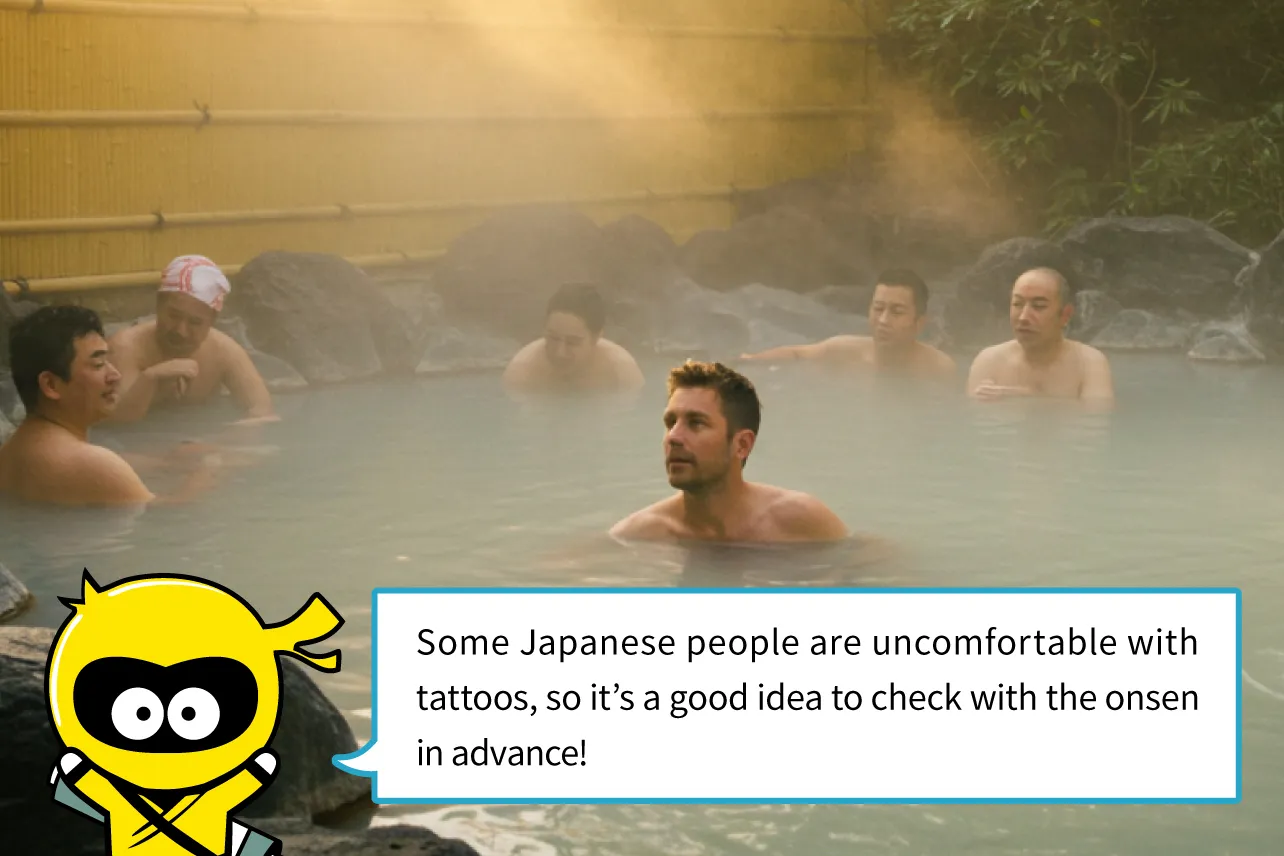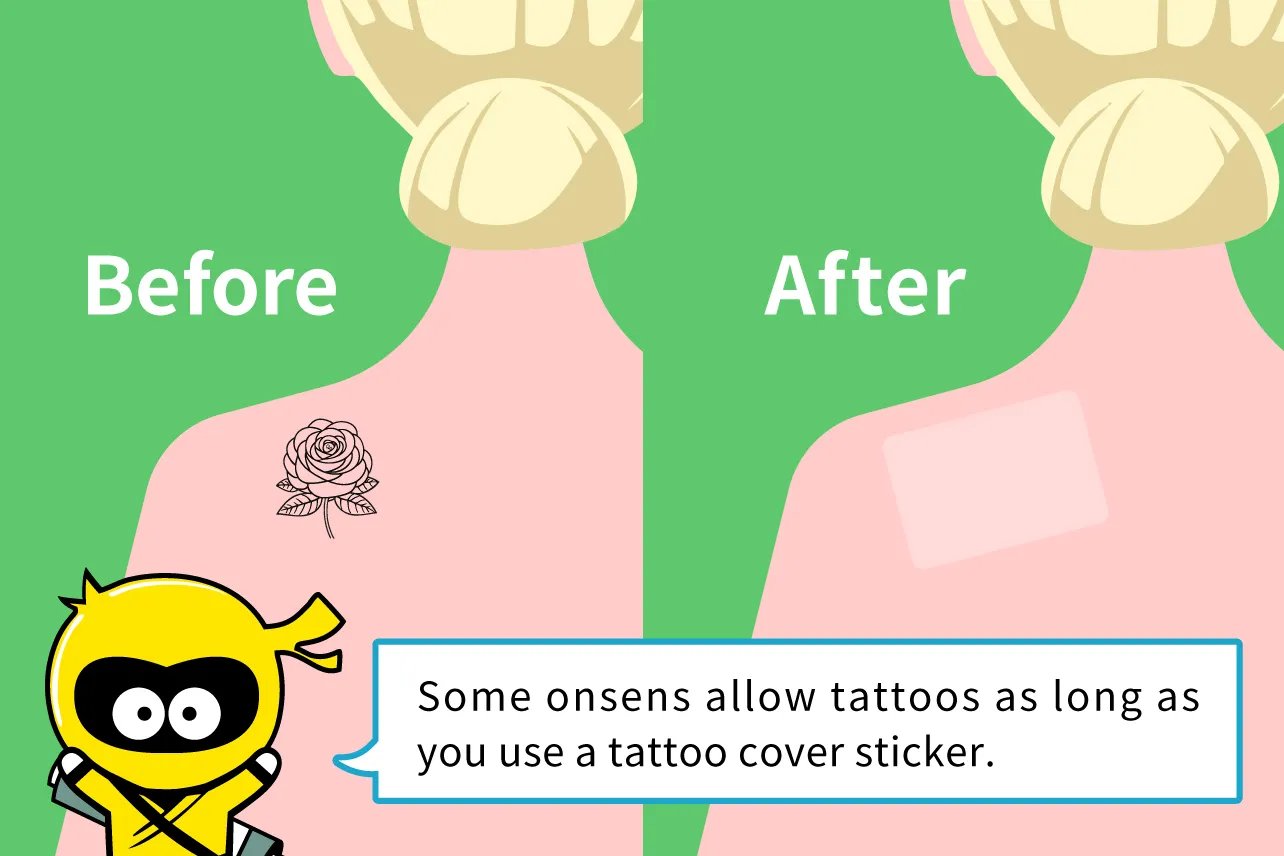

Why Are Tattoos Often Banned in Japanese Onsens?
In Japan, tattoos have traditionally been seen as “antisocial,” largely due to their association with the Yakuza. This perception often leads to tattoos being banned in onsen facilities. To maintain a comfortable and safe environment for all guests, many onsens restrict entry to people with visible tattoos. Historically, tattoos in Japan were used as punishment for criminals during the Edo period, which contributed to their negative image. As tattoos became a symbol of Yakuza culture, this societal perception led to widespread bans in public baths. In fact, many onsens continue to deny entry to tattooed guests, with signs clearly posted at the facilities. However, with the increase in foreign tourists, there’s a growing movement to ease these rules under certain conditions. While younger generations are beginning to accept tattoos as fashion, especially under Western influence, traditional onsen culture still carries stigma, especially among older visitors.
Using an Onsen with Tattoos: General Rules


Most public baths and onsens in Japan prohibit guests with visible tattoos. However, some facilities now allow entry if small tattoos are covered with tattoo cover stickers. The size and placement of tattoos that can be covered vary by location, so it’s important to check the official website or contact the onsen beforehand. Some places also sell or rent cover stickers at the front desk. Keep in mind that the stickers may have limited color and size options, so they might not fit your tattoo perfectly.
Japan Tourism Agency Guidelines for Foreign Visitors
To accommodate the rise in international visitors, the Japan Tourism Agency has encouraged onsen operators to allow tattooed foreign tourists to bathe if tattoos are covered. The guidelines recommend the use of tattoo cover stickers and multilingual signage for prohibited actions. The agency also suggests using private family baths or designated time slots to minimize friction between guests and facilities. These are non-binding suggestions, but many local governments are promoting awareness. This effort has extended to small inns in rural areas, many of which are now trying more flexible approaches.
Basic Onsen Etiquette and Tips
Before entering the bath, it’s essential to wash your body thoroughly using soap and a shower at the wash station. Towels must not be dipped into the bathwater; place them on your head or leave them in the dressing area. Speak quietly, avoid loud conversations or phone use, and respect the tranquil atmosphere. Pay attention to the water temperature and how crowded the bath is, and take breaks to avoid feeling unwell from staying in too long. Different types of baths—such as mixed-gender or outdoor baths—may have unique rules, so follow posted instructions and local signs.
Using Private or Family Baths
Private baths (family baths or reserved outdoor baths) allow you to enjoy the onsen experience without worrying about other guests. Many inns let you book these by phone or at check-in, and they often offer hourly day-use plans. These baths are popular among travelers and families, especially since tattoo cover stickers may not be required. Some facilities offer plans starting around 5,000 yen for short stays, allowing flexibility in your travel schedule. At some locations, private baths are first-come, first-served, so it’s best to check details on the official website or by phone in advance.
How to Find Tattoo-Friendly Onsens and Sento
Tattoo-friendly onsens and public baths can be found through area-based searches on the Japan Spa Association website and other dedicated media platforms. The Japanese-Onsen site also offers a Tattoo Friendly page with reviews, prices, and facility details. Some travel booking sites also let you filter by “tattoo-friendly” options when searching for accommodations. Once you arrive, confirm with the front desk if tattoos are permitted for extra peace of mind.
Pre-Visit Preparation and Checklist to Avoid Issues
Before your visit, check the facility’s policy on tattoos by phone or through their website. Also confirm whether they offer support in English or other languages. To prevent problems, it’s a good idea to buy and bring your own tattoo cover stickers in advance. Also, consider preparing small change, extra towels, basic Japanese phrases, or a translation app to help your visit go smoothly. Choosing a private or family bath is a great way to avoid potential issues at public baths. If something does go wrong, calmly speak to the staff and try to resolve the situation respectfully.
Items and Tips for Covering Tattoos


Tattoo cover stickers are highly recommended. These stickers come in various sizes and skin-tone shades, and they can last for a few days if applied to clean, dry skin. You can find them on Amazon or at popular Japanese stores like Don Quijote, as well as online shops. But keep in mind that color and size options may be limited. Waterproof foundation tapes are another good alternative with long-lasting durability. Of course, using a private bath lets you relax without worrying about covering your tattoos at all.
You might be interested in this
Japan’s Changing Attitude Toward Tattoos and Onsens
Due to efforts to attract international tourists, even traditional onsen towns like Kinosaki and Beppu are starting to accept tattoos. More young and open-minded onsen owners are emerging, and smaller inns are increasingly allowing tattoos under certain conditions. In some tourist areas, free tattoo cover stickers are even being provided. With the number of inbound tourists continuing to grow, it’s likely that Japan will gradually adopt more flexible attitudes, paving the way for better coexistence between onsen culture and tattoos.




